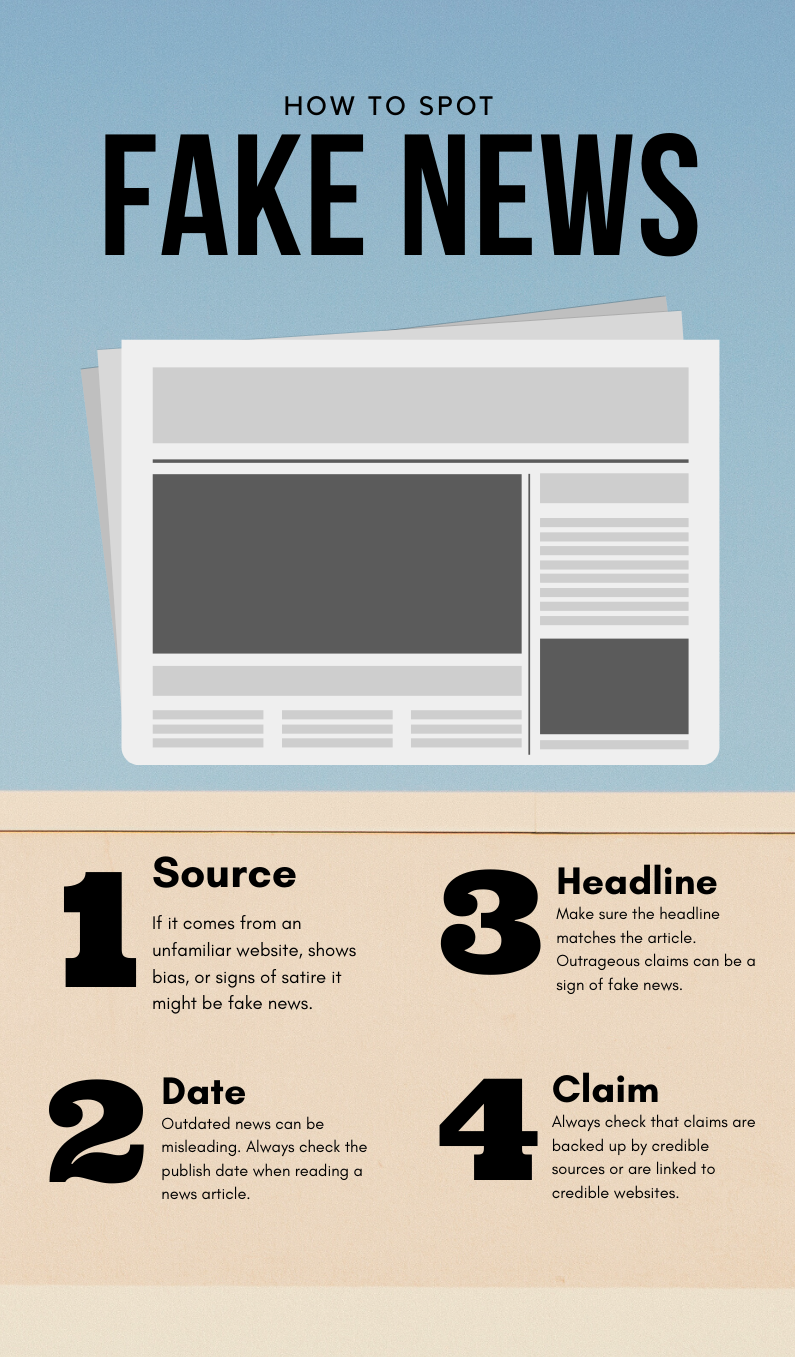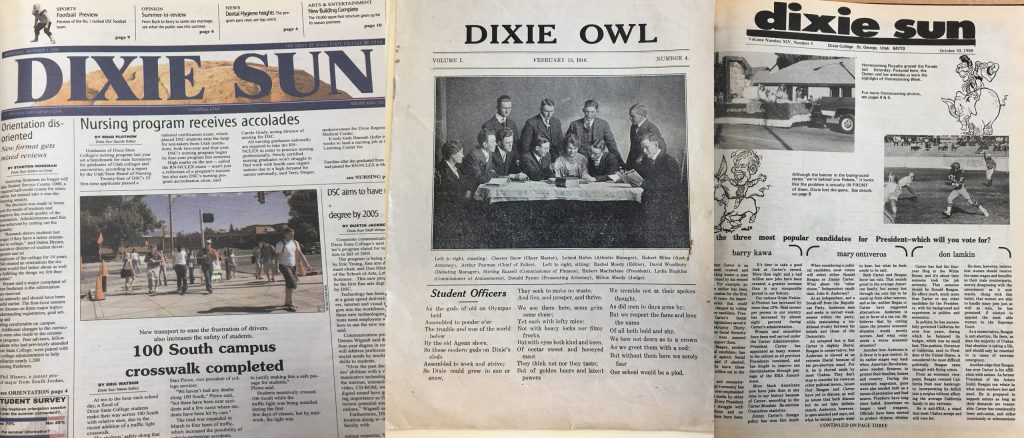While watching, listening or reading any news outlet, it’s important to remain conscientious so you can differentiate what is fake and what is real.
Fake news is news, stories or hoaxes created to deliberately misinform or deceive readers, said Jennifer Bowen, a reference librarian at the St. George library.
Bowen said fake news can be found on any news outlet whether it comes from a newspaper, social media, podcast or cable news. The first step is to identify whether the information that is being spread is true or false.
Kallen Webster, a freshman general studies major from Kansas City, Missouri, said he wishes there was more accountability for big news sources but also doesn’t believe there is any way to get rid of fake news entirely. He said anyone can post about anything on social media, which continues the spread of fake news.
While there is no way to stop fake news, there are ways people can spot fake news to prevent it from spreading.
Avoid suspicious links
When looking online for sources, try to stay away from websites that have a suspicious url’s, such as SuperEaglePatriot.org said Mark LaVoie, assistant professor of media studies. Websites like these have a higher chance to contain a bias or alternative goal the author wishes to accomplish.
The internet is full of anonymous users which may have people deliberately trying to influence certain reactions, LaVoie said. He said people may believe outrageous claims, so be sure the site is well known and can be easily found through a search engine.
Stay aware of biases
“People should be asking themselves if what they’re reading, hearing or watching is fake news or if it just doesn’t fit their personal opinions and beliefs.”
Jennifer Bowen, reference librarian at St. George library.
Fake news happens when writing is purported too be truthful but someone is deliberately distorting the facts to provoke a reaction, either positive or negative, Bowen said.
Bowen said people should be asking themselves if what they’re reading, hearing or watching is fake news or if it just doesn’t fit their personal opinions and beliefs. Everyone has their own personal biases and should be aware of their own and everyone else’s. She said to be wary when finding a story that seems to perfectly fit your personal beliefs because there may be a good chance that it was deliberately done.
“The phrase ‘fake news’ is mistaken for ‘news I don’t agree with’ which is not really what it is,” Bowen said. “There is a lot of fake news out there, but people really need to pay attention because they are using the phrase ‘fake news’ so much that it is becoming meaningless.”
Be skeptical while browsing news
The best way to combat fake news is to make sure we do not participate in the proliferation of fake news, said LaVoie.
“Anytime someone reads news in social media, print or on the internet generally, they need to do their due diligence and not participate in the spread of misinformation,” LaVoie said.
LaVoie said a healthy level of skepticism will help make sure that the spread of fake news is minimized as much as possible. Individuals may spread information they might not know is incorrect information.
A credible foundation can publish fake news just like a less crediable foundation can publish an authentic news story, LaVoie said. Truth is something that is needed to be tested consistently by both the producer of news and the audience.
Fake news has real-world consequences that affect everyone. For example Alex Jones, a radio show host and far right conspiracy theorist, falsely claimed on his show, Info-wars, that the Sandy Hook school shooting was staged and the parents of the dead children were “crisis actors.” Jones is now being sued by nine families with losses due to the shooting.




